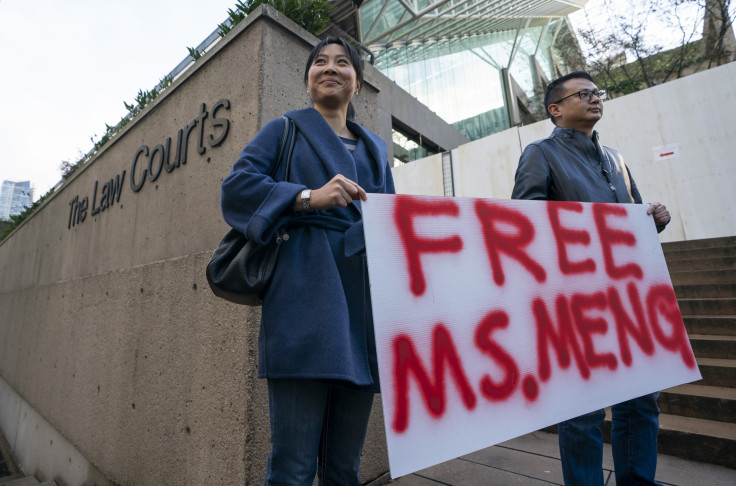Huawei CFO Meng Wanzhou Sues Canada Over Arrest, China Slams Extradition Hearing
The chief financial officer of Chinese tech giant Huawei is suing Canada over her arrest at Vancouver airport last year for allegedly violating her civil rights.
Meng Wanzhou, CFO and daughter of Huawei founder Ren Zhengfei, is claiming damages against the Royal Canadian Mounted Police (RCMP), Canadian Border Services Agency (CBSA) and the Canadian federal government for detaining and interrogating her before telling her she was under arrest.
Meng's claim -- which she filed Friday in British Columbia's Supreme Court -- alleges that her detention was "unlawful" and "arbitrary," and that the arresting officers had "intentionally failed to advise her of the true reasons for her detention, her right to counsel, and her right to silence."
This follows reports that the Canadian government has approved extradition proceedings against Meng, infuriating China and exacerbating an already bitter quarrel between two of the world's biggest economies.
Canadian authorities detained Meng last December on charges related to alleged violations of U.S. sanctions law on Iran. Calling the matter "a severe political incident," Chinese Foreign ministry spokesman Lu Kang said Saturday that Beijing "deplores and firmly opposes the Canadian side's obstinately moving forward the so-called judicial process."
"We once again urge the U.S. side to immediately withdraw the arrest warrant and extradition request for Ms. Meng Wanzhou and urge the Canadian side to immediately release Ms. Meng Wanzhou and ensure that she returns to China safe and sound," the statement read.
Diplomatic relations between the two countries have deteriorated badly since Meng's arrest. In what were apparently retaliatory moves, China arrested two Canadians on national security grounds; and a Chinese court hastily sentenced to death a Canadian man whom Chinese authorities had only jailed for drug smuggling.
In a statement issued Friday, the Canadian government said the extradition hearing, which will begin at British Columbia's Supreme Court within the week, "is not a trial, nor does it render a verdict of guilt or innocence."

Even so, a federal justice minister will probably have to confront the difficult choice of offending the U.S. by rejecting the extradition bid, or China by accepting it.
The U.S. position on the issue adds another layer of complexity. Meng's case is one of several ways the United States is attempting to apply pressure on Huawei.
The U.S. government sees the Chinese company's technology as a threat to national security. Friday's announcement came a day after Huawei pleaded not guilty to federal charges alleging it tried to steal trade secrets from T-Mobile ( TMUS ). Washington has pressured other countries into limiting their use of the Huawei's technology, warning they could be rendering themselves vulnerable to surveillance and data breaches.
Meng owns two mansions in Vancouver and is currently out on bail. She will again appear in court on March 6 to schedule the date of the hearing. She will remain under house arrest throughout the extradition proceedings, as a stipulation of her bail. The court has assigned her a security detail and she must continue to wear a GPS tracking device around her ankle.
© Copyright IBTimes 2025. All rights reserved.





















